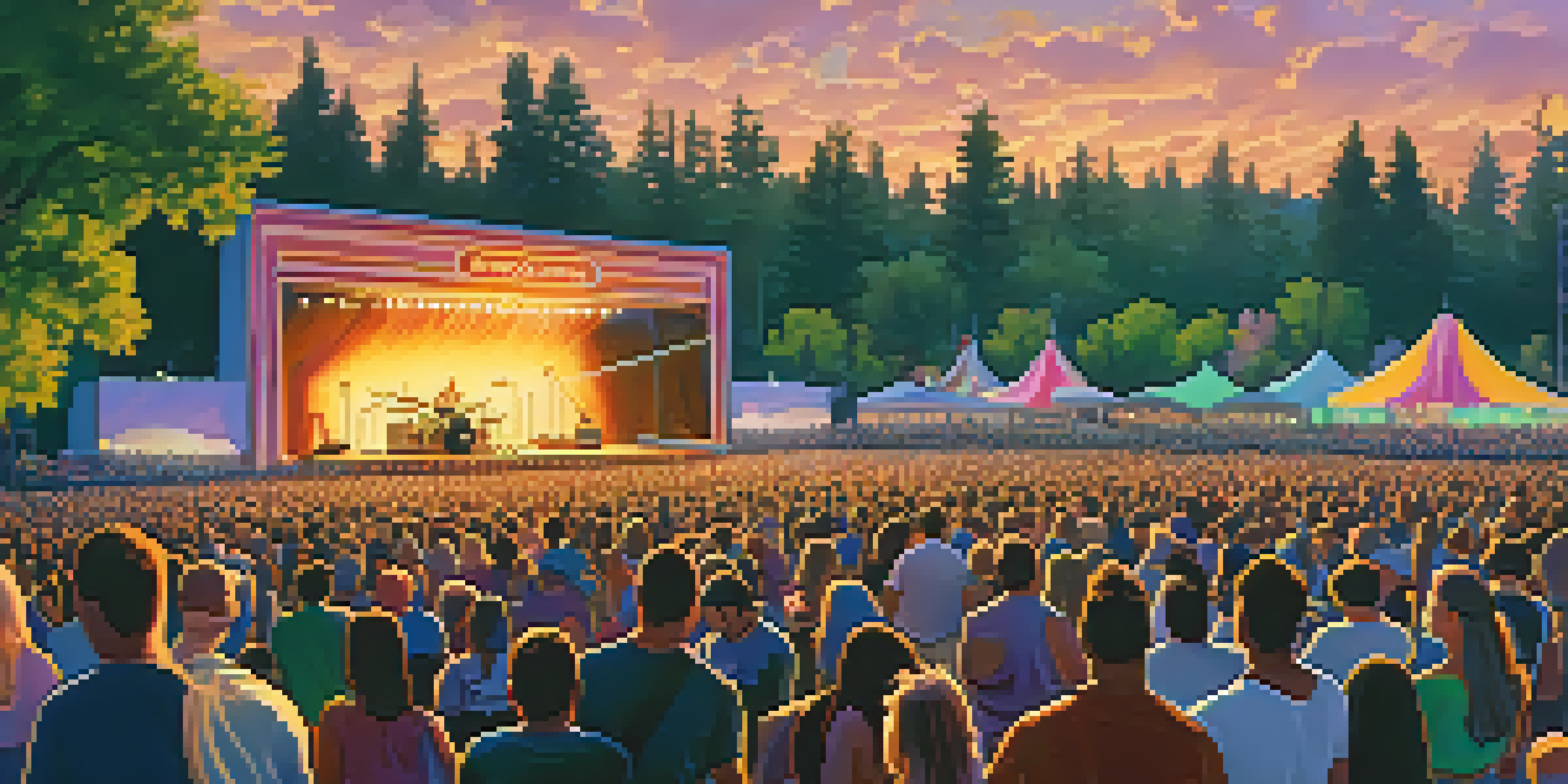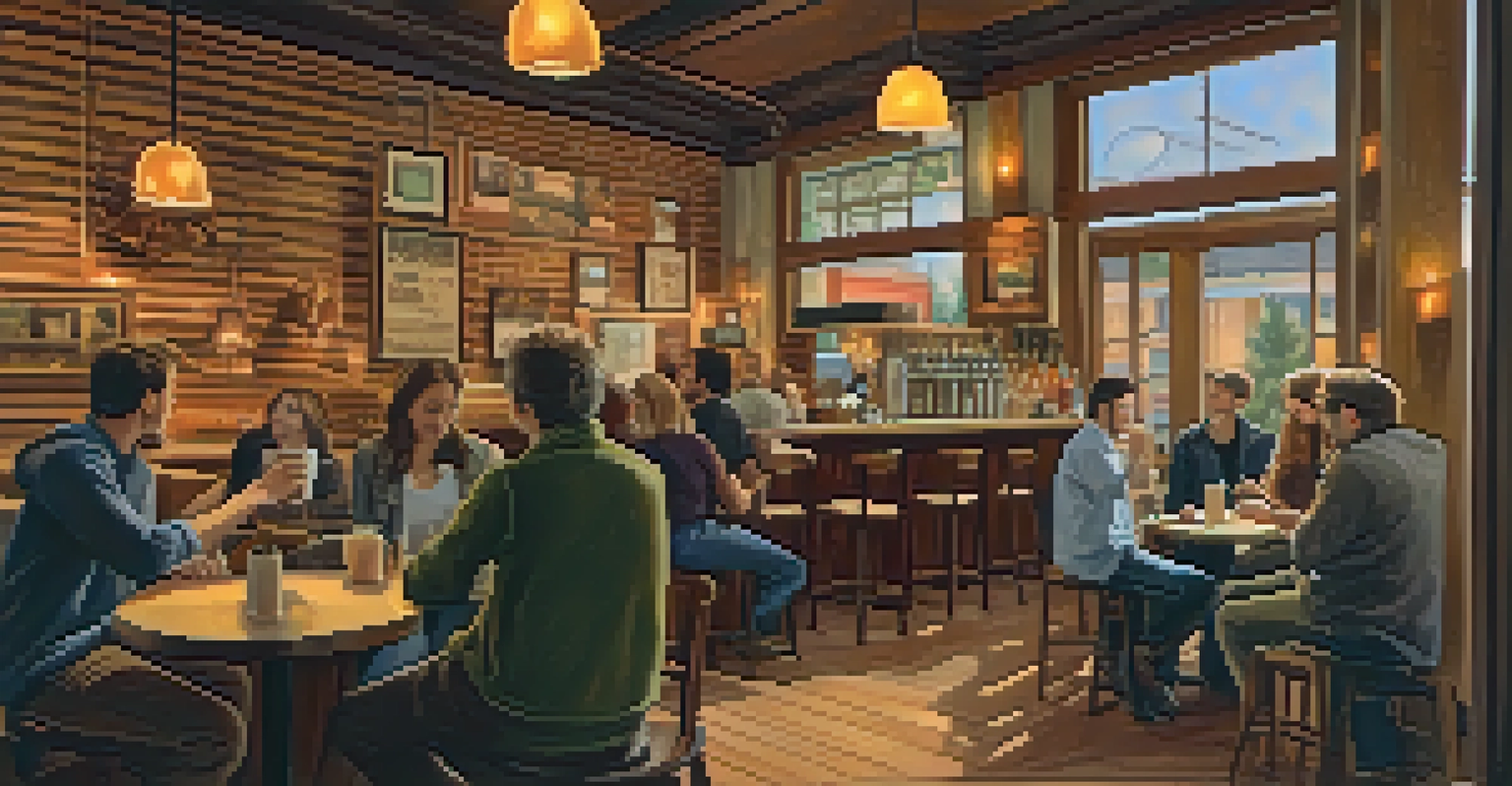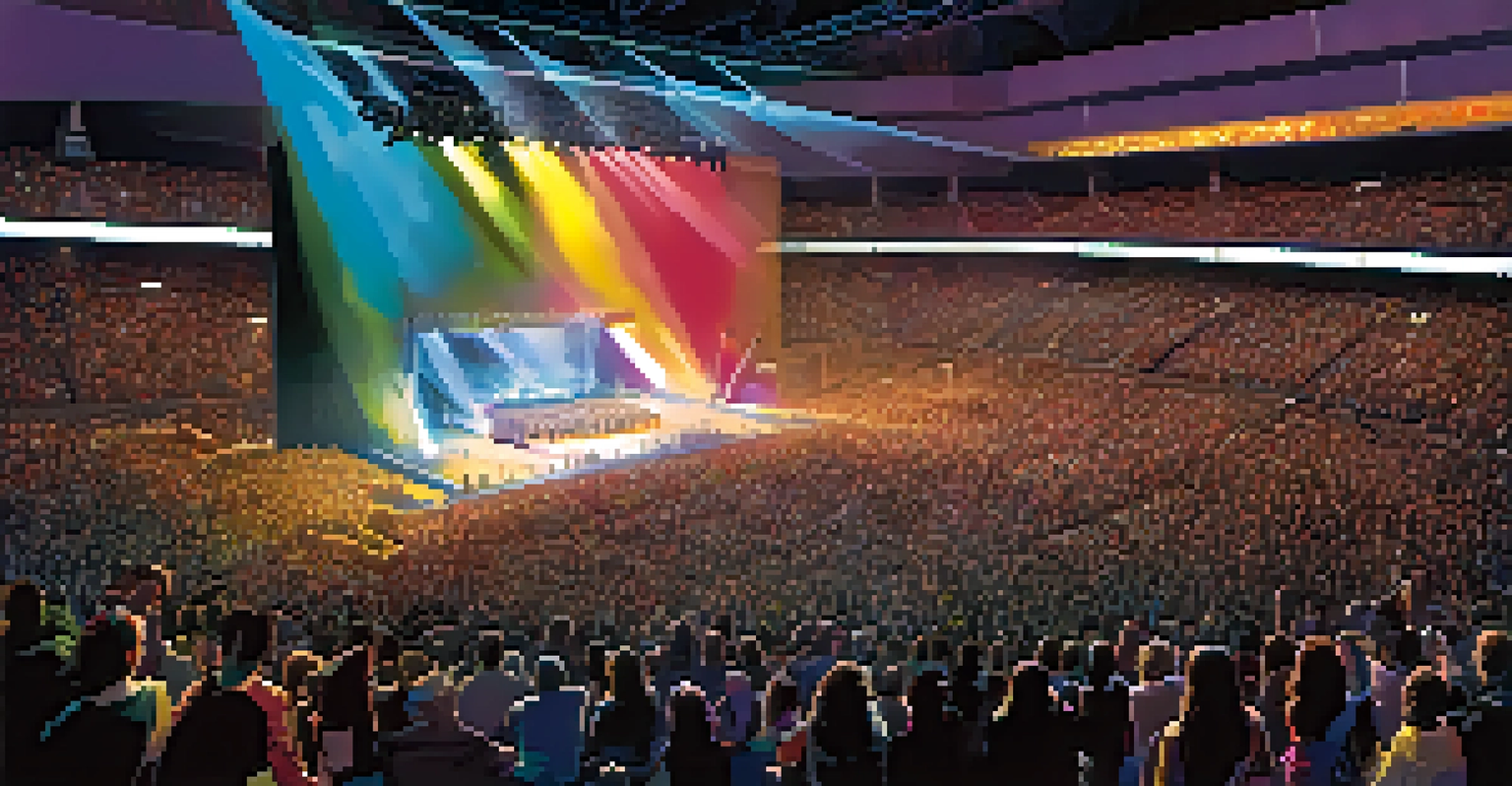The Evolution of Spokane's Music Scene Over the Years

The Roots of Spokane's Musical Heritage
Spokane's music scene can trace its roots back to the early 20th century, when the city was a bustling hub for various musical styles. With the rise of jazz in the 1920s, local venues began hosting live performances, drawing talent from across the region. This era laid the groundwork for a vibrant cultural landscape, where music became intertwined with the community's identity.
Music can change the world because it can change people.
As the decades progressed, Spokane's music scene evolved, embracing different genres and influences. The post-war period saw an influx of rock and roll, with local bands gaining popularity in dance halls and theaters. This shift not only reflected national trends but also fostered a sense of pride among Spokane's musicians and fans.
Today, the legacy of those early days can still be felt in Spokane's diverse music offerings. From jazz festivals to rock concerts, the city has successfully maintained its musical roots while adapting to contemporary tastes. This rich heritage continues to inspire new generations of artists, ensuring that Spokane remains a lively musical destination.
The Rise of Local Bands in the 70s and 80s
The 1970s and 80s marked a significant turning point in Spokane's music scene, as local bands began to gain prominence. During this time, venues like The Met and The Big Dipper emerged as essential stages for up-and-coming talent. These spaces became the breeding ground for unique sounds that would define Spokane's musical identity.

Many bands from this era drew inspiration from punk rock and new wave, creating a dynamic atmosphere that resonated with the youth. Events like the Spokane Music Festival showcased local talent, helping bands connect with wider audiences and fostering a sense of community among musicians. This era was crucial in establishing Spokane as a hotspot for live music.
Spokane's Rich Musical Heritage
The city's music scene has evolved from jazz roots in the 1920s to a diverse array of contemporary genres, reflecting its vibrant cultural identity.
As these local bands gained recognition, they contributed to a thriving music scene that attracted talent from outside the city. This influx of musical influences enriched Spokane's culture, leading to collaborations and the creation of new genres. The impact of the 70s and 80s is still felt today, as many contemporary artists credit this vibrant period as a source of inspiration.
The Impact of Technology in the 90s
The 1990s brought about a technological revolution that transformed how music was produced and consumed. In Spokane, this shift allowed local artists to record and distribute their music more easily. The rise of home studios and affordable recording equipment meant that musicians no longer needed to rely solely on big-label support.
The beautiful thing about music is that it connects people. It carries a message, and we can all relate to that message.
This democratization of music production led to an explosion of creativity in Spokane's scene. Artists experimented with various genres, blending influences from grunge, hip-hop, and electronic music. The diversification of sounds helped local musicians carve out their unique identities while still paying homage to the city's rich musical history.
Moreover, the internet played a pivotal role in connecting Spokane's musicians with wider audiences. Platforms like MySpace and early social media allowed bands to share their music and promote shows effortlessly. This newfound accessibility helped establish Spokane as a noteworthy player in the regional music landscape, setting the stage for future growth.
Spokane's Music Festivals and Cultural Events
As the new millennium dawned, Spokane's music scene began to thrive through an array of festivals and cultural events. Festivals like the Spokane International Film Festival and the Spokane Jazz Festival showcased local and national talent, fostering a sense of community and celebration. These events helped solidify Spokane's reputation as a vibrant music destination.
In addition to established festivals, new events emerged, focusing on specific genres and attracting diverse audiences. From folk and country to hip-hop and electronic music, Spokane's festivals celebrated a wide spectrum of sounds. This inclusivity not only brought together musicians and fans but also enriched the cultural fabric of the city.
Local Bands Thrived in the 70s-80s
The rise of local bands during the 1970s and 80s established Spokane as a hotspot for live music, fostering community and unique sounds.
These gatherings provided a platform for local artists to showcase their talent, often leading to new collaborations and opportunities. As musicians connected with audiences, they contributed to the growing love for live music in Spokane. The impact of these festivals is evident today, as they continue to draw crowds and elevate the city's music scene.
The Role of Venues in Shaping Spokane's Sound
Local venues have played a crucial role in shaping Spokane's music scene, providing spaces for artists to perform and connect with audiences. From intimate coffee shops to large concert halls, each venue contributes its unique flair to the musical landscape. Iconic spots like The Knitting Factory and The Spokane Arena have hosted countless performances, making them go-to destinations for music lovers.
These venues not only support local talent but also attract national acts, creating a vibrant ecosystem where music thrives. As artists take the stage, they share their stories and connect with fans, fostering a sense of community and belonging. The energy of a live performance in Spokane's intimate venues often leaves a lasting impact on both the artists and the audience.
Moreover, the evolution of these spaces has mirrored changes in musical trends and audience preferences. As genres have shifted and new styles have emerged, venues have adapted to meet the needs of both performers and fans. This ongoing evolution ensures that Spokane remains a dynamic and exciting place for live music.
The Influence of Spokane's Artists on the Scene
Spokane boasts a wealth of talented artists who have significantly influenced the city's music scene. Musicians like Neko Case and The Shins have roots in the area, showcasing the talent that has emerged from Spokane. Their success stories inspire local musicians and create a sense of pride within the community.
As these artists gain recognition, they often return to Spokane to perform, further solidifying the connection between the city and its musical talent. Their presence not only boosts the local music scene but also encourages collaboration among artists. This cycle of inspiration and support helps foster a thriving creative environment.
Future Growth of Spokane's Music Scene
With strong community support and technological advancements, Spokane's music scene is set for continued innovation and evolution.
Additionally, Spokane's artists are known for their willingness to uplift fellow musicians. Many participate in collaborative projects and events that promote local talent. This spirit of camaraderie strengthens the bonds within the music community and ensures that Spokane continues to be a nurturing ground for aspiring musicians.
Looking Ahead: The Future of Spokane's Music Scene
As we look to the future, Spokane's music scene appears poised for continued growth and evolution. With a rich history and a diverse range of musical styles, the city is ripe for new innovations and creativity. Emerging artists are finding their voices, while established musicians continue to inspire and mentor the next generation.
Community support for local music remains strong, with various initiatives aimed at promoting and preserving Spokane's artistic heritage. From music education programs in schools to local grants for musicians, these efforts highlight the city's commitment to fostering a vibrant arts culture. The future looks bright for Spokane's music scene.

Moreover, as technology continues to evolve, Spokane's artists will likely explore new avenues for creativity and expression. The rise of virtual performances and digital collaborations may open up exciting possibilities for musicians. With its deep-rooted history and a forward-thinking spirit, Spokane's music scene is sure to thrive in the years to come.